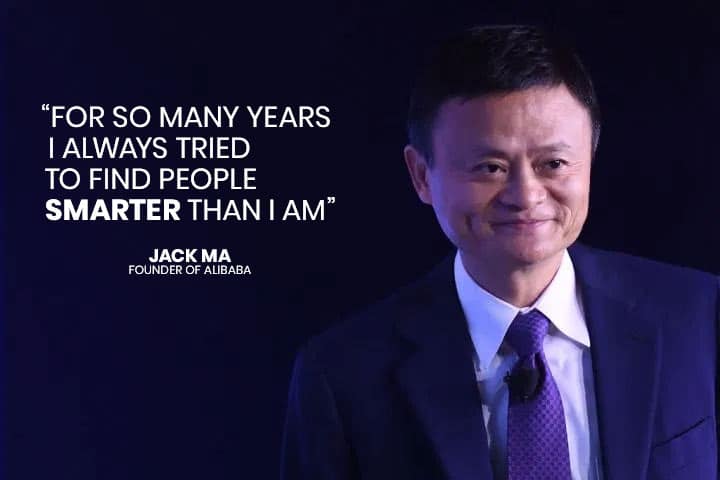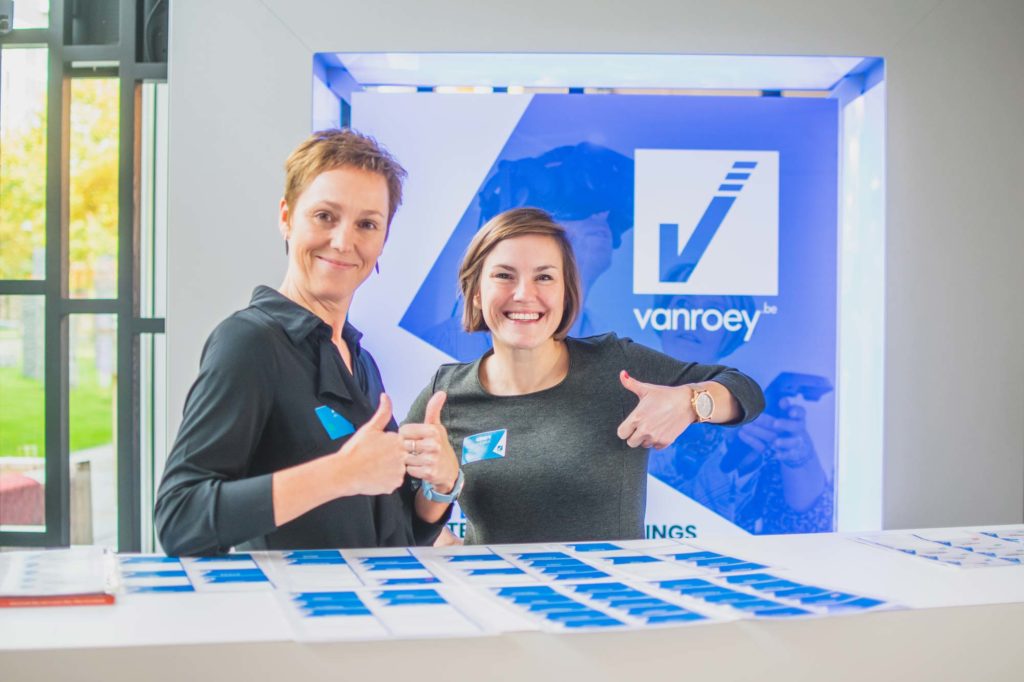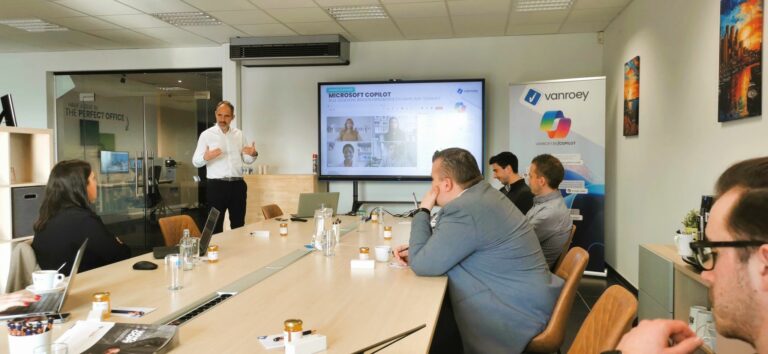
Because the CEO is confronted with all aspects of business operations, the difficult files and seemingly insurmountable challenges also end up on his desk. Although the CEO often doesn't have the in-depth knowledge in one particular domain, employees, managers and shareholders often look at him when something is wrong. So what are the biggest challenges a CEO ever faces? We list seven of them.
Staff
It's usually shouted in chorus when you ask a group of CEOs about their biggest challenge: Personnel! But what exactly is so difficult about that staff? We distinguish three different challenges here: finding, keeping and motivating.
Find
More than ever, the War for Talent is a cry of distress that you hear in every sector: shortage of teachers, technical profiles, nurses, engineers...
One of the reasons for this is that more and more in-depth knowledge is needed. Due to the emergence of new technologies and a densification of the knowledge network, knowledge accumulation around the world is evolving ever faster. Knowledge is more easily accessible due to the high connectivity, but that knowledge also has to be absorbed, applied and passed on within companies. As the knowledge becomes more and more specific, the classic training courses at schools and universities also fall short more and more. A student who graduates with brio has proven that he can process a certain volume of knowledge and has a general education, but is seldom immediately employable in business. While the youngster earns his first wages, his employer will still be allowed to invest heavily in on-the-job and formal training.
Keep
That first year of employment is crucial. As an employer, you don't want to invest in the wrong profile. If, after six months, it turns out that the potential is only half as great as previously estimated, a lot of money and time is wasted. On the other hand, if the new employee quickly acquires knowledge and develops into a high potential, it can become difficult to keep the white raven. If his main goal is to get a high mark on his paycheck, there is a good chance that he will go shopping on the labour market. Given the unbalanced demand-supply ratio, it is very likely that a competitor will find that higher figure as well.

Motivate
Finding and keeping staff is not enough. With a boite full of carottentrekkers, no CEO has been set up. Fortunately, it's nowhere that bad, such companies don't exist. As a CEO, you still expect a certain output and initiative from your employees. These are performance parameters that dare to fluctuate for various reasons.
Some of these causes are beyond the control of the CEO. Family circumstances or illness can have an impact on an employee's performance level. As a CEO, you cannot mitigate such causes, but you can have an impact on their effect on the performance level. Just making yourself accessible so that you know what is going on in the private sphere of your employees can make a world of difference. Then you can give the person in question the necessary space and time.You'd better pass that urgent intervention on to somebody else.
 As CEO, you can control other things that can influence the performance level of your employees, such as providing them with the right toolsA carpenter who has to put cabinets together with a worn-out screwdriver won't make it out of a competitor with a stapler gun. Good work starts with good tools. This also applies to knowledge workers who need to have the right equipment and applications at their disposal. Corporate culture is thus another intangible but oh so important fact. It is somewhat related to the marketing and branding we talked about earlier, but even more related to the values the company stands for. A corporate culture is created by the people who work in the company and is therefore a dynamic fact. Drinking a pint together after office hours is a part of it, but it certainly doesn't stop there.
As CEO, you can control other things that can influence the performance level of your employees, such as providing them with the right toolsA carpenter who has to put cabinets together with a worn-out screwdriver won't make it out of a competitor with a stapler gun. Good work starts with good tools. This also applies to knowledge workers who need to have the right equipment and applications at their disposal. Corporate culture is thus another intangible but oh so important fact. It is somewhat related to the marketing and branding we talked about earlier, but even more related to the values the company stands for. A corporate culture is created by the people who work in the company and is therefore a dynamic fact. Drinking a pint together after office hours is a part of it, but it certainly doesn't stop there.
Motivating staff therefore mainly has to do with creating an environment in which people feel at home, a place they like to come to, people they want to work with and assignments that challenge them just enough.
Staying competitive
In addition to the staff, there are a number of challenges for the CEO that have to do with staying competitive, keeping the company alive and profitable, so to speak. First of all, it is a question of keeping the business running as smoothly as possible as usual. Secondly, there is an increasingly prominent aspect of disruption and innovation.
Efficiency and Effectiveness
Without even thinking about developing new products and services or entering totally new markets, every good CEO will have thought about the work processes. To satisfy the customer in any sector, you have to serve him in time, with the right quality offer. If your processes are too slow or sub-optimal, you lose time, money and quality in your value chain. A customer must be able to reach your company easily, obtain information quickly and be able to place an order easily. That order must then be processed quickly and correctly and the resulting products or services must be delivered flawlessly. To achieve this efficiency and effectiveness every day, you will have to use the right tools: machines, tools, software, applications, websites, social media, ... you name it. With the rapid evolution of digital technologies, new opportunities and different ways of working are emerging. Every good CEO keeps an eye on this evolution, informs himself and introduces projects to keep his company young and dynamic in this area.
Disruption and innovation
With the rapid development of digital technologies, we're also opening the door to disruption. New players who come to cut off part of your market segment by applying a completely different business model. That's the negative view of disruption, from the victim's point of view. As CEO, you can also see it from the disruptor's perspective. In which markets, in which you are not yet active, could the combination of your company's expertise and the application of digital technologies help you kick off?
A healthy CEO analyses both points of view. If you know how your company can be attacked by a disruptor, you can prepare to react adequately. On the other hand, it is dangerous to stand still and just keep on doing business as you have done for decades. Thinking about new products, services, markets and business models is best done before a disruptor jumps onto your market. It is therefore best to involve a few driven employees from different departments right away. A well-founded innovation plan helps to ensure continuity and the realisation of new ideas.
Macroeconomic uncertainties

As mentioned earlier when motivating staff, it is also important to be well informed. Things that you as CEO don't have an impact on, but that can have a major impact on your company, need to be well monitored. If you are aware of the course of events, you can react quickly if necessary. Thinking in advance about your options in different possible scenarios also helps to prevent your company from becoming a macroeconomic checkmate.
Literally not lying awake
A person only performs well when he's out and about. This also applies to a CEO. Many people are busy and mortgage sleep, relaxation and family matters. A company is only as healthy as its employees and the CEO is an important link in this. All challenges across all departments come together with him. As long as things are going well, that usually means a satisfying crowd. However, if there are a lot of obstacles on the road, a CEO can also become too much.
A good CEO knows his or her limits and does not allow himself or herself to exceed them to such an extent that it adversely affects the operation of the company. Surrounded by competent people, inside and outside the company is an absolute prerequisite to maintain mental peace itself. This is a challenge that every CEO must take up in order to ensure the continuity of the company.
And so we may find a common thread running through the challenges of every CEO: to be informed, to surround oneself and to be accessible.











